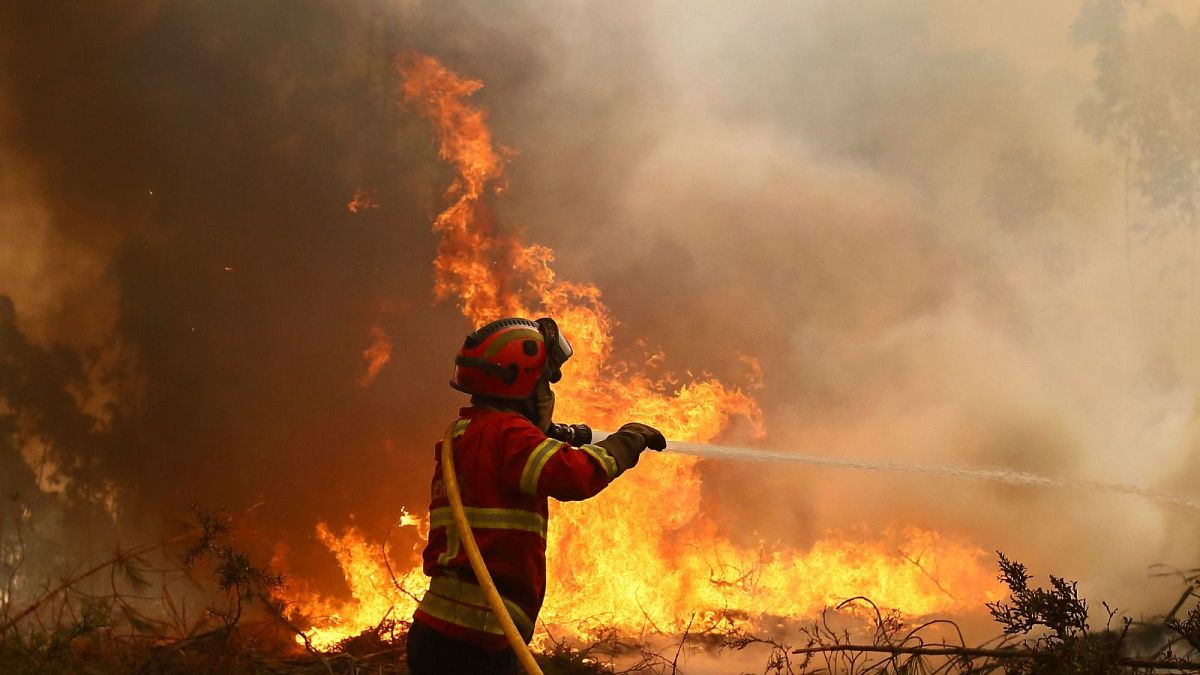

In light of various recent environmental events across the globe, a wave of challenges highlights the ongoing impact of climate change and the complexities surrounding natural resource management. From intense wildfires in Southern Europe to the pressures on Morocco’s argan oil industry, and debates over the EU’s emissions targets, these developments underscore the delicate balance between human activity and environmental stewardship.
Portugal is grappling with multiple forest fires in its northern and central regions. The region is enduring high temperatures and strong winds, which have amplified the risk of wildfires, creating a strenuous situation for civil protection authorities. These climatic conditions underline a broader pattern recognized across Europe, where fires have become more prevalent and intense due to climate change.
Similarly, wildfires have been raging across Turkey and Albania, leading to loss of life and property. In Turkey, three firefighters tragically lost their lives when their vehicle overturned while combating the fires. Such challenges put immense pressure on firefighting resources and raise concern over the increasing frequency and scale of these natural disasters.
An equally pressing concern lies in northern Africa where Morocco’s production of argan oil—a highly sought-after ingredient in the beauty industry—is facing serious challenges due to drought and deforestation. Argan trees, endemic to the region, are under pressure from both environmental stress and heightened global demand. The sustainability of this precious resource is vital not only to the local economy but also to the preservation of traditional methods of oil extraction.
Further adding to the environmental discourse, the Democratic Republic of the Congo (DRC) has opened an expansive portion of its land to oil and gas drilling, a decision with significant implications for conservation efforts. The DRC is home to critical wildlife habitats, including those of endangered species such as the lowland gorillas. The move to auction off vast areas for fossil fuel exploration could undermine vital conservation initiatives, affecting millions and altering pristine ecosystems.
In Europe, the discussion continues as MEP Ondrej Knotek challenges the continent’s role in climate leadership. By suggesting the EU skip its 2040 emissions targets, Knotek brings to the forefront the debate on how best to achieve climate neutrality by 2050. His stance argues against leading the charge on climate change measures, provoking further discourse on global responsibility and action.
Meanwhile, proposed changes to the EU’s deforestation law have spurred concerns regarding the illegal timber trade, specifically from countries like Russia and Belarus. The adjustments could potentially facilitate the import of illicit timber, posing a risk to ongoing efforts against deforestation and the illegal exploitation of natural resources.
While these diverse instances might seem distinct, they echo a common theme: the intricate relationship between economic development, environmental sustainability, and climate responsibility. Each scenario underscores the need for mindful policies and global cooperation as the world faces the multifaceted challenges of climate change and natural resource management.
As we navigate through these environmental hurdles, a calm, deliberate approach centered on collaboration and sustainable practices remains crucial in forging a path towards a balanced coexistence with nature.
Source: {link}
